In recent years, Morocco has emerged as a compelling destination for high-net-worth individuals exploring avenues for citizenship through investment. The country’s rich cultural heritage, stunning landscapes, and strategic economic positioning play crucial roles in attracting investors looking to relocate or engage in investment opportunities. While there is no formal Morocco Citizenship By Investment program, potential investors can navigate successful paths through various residency options, particularly in sectors aimed at economic growth. Understanding the intricacies of the Moroccan immigration landscape is key for those interested in the Moroccan Citizenship Program, making it essential to delve into the investment opportunities and regulatory framework that the nation offers. With its unique blend of affordability and quality of life, Morocco presents a viable choice for international investors aiming to broaden their horizons through the Citizenship by Investment Morocco approach12.
Key Takeaways
- Morocco’s vibrant culture and economic landscape attract foreign investors.
- Understanding residency options is essential due to the absence of a formal citizenship by investment program.
- The investment landscape includes key areas that promise significant returns.
- Moroccan residency permits help navigate the country’s immigration framework.
- Potential investors should ensure compliance with financial criteria and documentation.
- Morocco’s mild climate and rich nature enhance its appeal to expats.
- Private international schools are preferred by expatriates for quality education.
Introduction to Morocco Citizenship By Investment
Citizenship Through Investment Morocco presents unique opportunities for investors interested in establishing ties to this vibrant country. Unlike various nations within the Middle East-North Africa region, Moroccan law does not mandate that foreign investors share ownership with local partners, offering greater flexibility for those interested in pursuing Morocco Economic Citizenship3. This distinction plays a vital role in encouraging foreign investments.
Foreign investments in Morocco face minimal restrictions, with notable exceptions in sectors such as agriculture, fishing, and audiovisual3. For individuals eyeing residency through investment, options like the passive income visa can appeal to those looking for a relaxed lifestyle while navigating local laws4.
Residency can also stem from investing in Moroccan businesses or real estate, paving a potential path towards citizenship. It’s essential for prospective investors to understand the local business landscape, where various company structures exist. A joint stock company demands a minimum share capital of MAD 3,000,000 if listed or MAD 300,000 if not listed3. The limited liability company is prevalent, requiring only one shareholder, while a simplified joint stock company initiated in 2021 allows flexibility without any share capital requirement3.
Foreign nationals planning to reside in Morocco for over 90 days must secure a residence permit known as Certificat d’Immatriculation, marking the first step toward a successful investment journey4. Ultimately, residency in Morocco can unlock numerous advantages such as visa-free travel to various countries, access to quality healthcare and education, and the right to work and own property4.
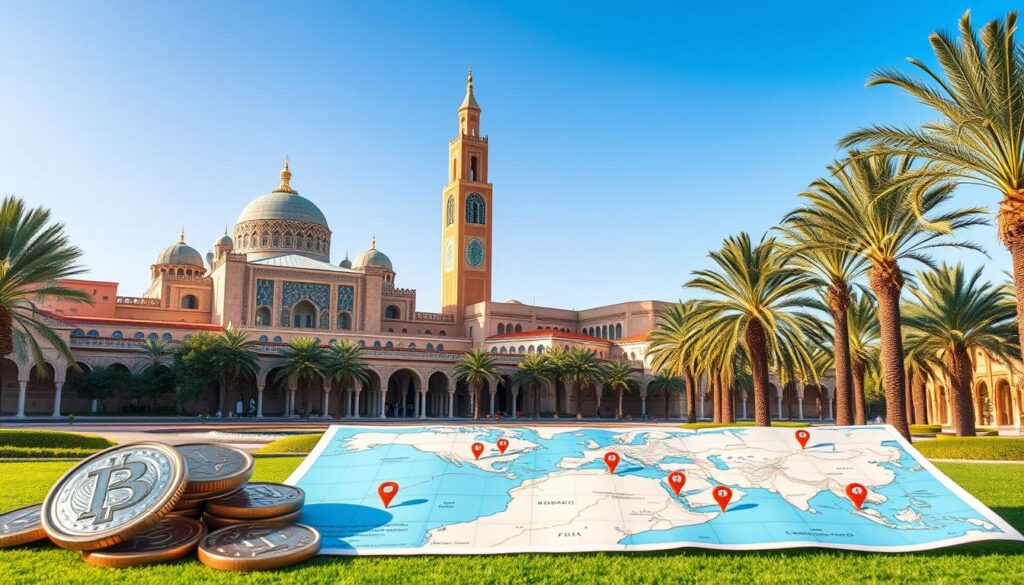
Understanding Morocco’s Immigration Landscape
The Morocco Immigration Landscape is characterized by its intricate regulatory environment, which plays a pivotal role in shaping the experience of foreign investors and immigrants. Potential investors need to navigate a variety of residency permits, including short-term, long-term, student, work, and retirement permits, each with its own Moroccan Visa Requirements. Morocco primarily aims to attract investment by inviting international investors to explore opportunities in key sectors such as agriculture, tourism, and services.
In 2021, Morocco experienced a notable surge in foreign direct investment (FDI), attracting $2.2 billion, marking a 52 percent increase from the previous year, with contributions mainly from France, the United Arab Emirates, and Spain5. The FDI stocks were predominantly invested in manufacturing, real estate, telecommunications, tourism, energy, and mines5. As part of a wider strategy, the updated Investment Charter, adopted in December 2022, aims to enhance private investments and includes incentives targeting strategic industries like defense and pharmaceuticals5.
Morocco’s immigration avenues are less straightforward than in many other nations with structured citizenship investment programs, necessitating a thorough understanding of the local laws6. Familiarity with these complexities becomes crucial for anyone contemplating relocation to Morocco, as it enhances informed decision-making and confidence in navigating the legal landscape. Expanding this knowledge base can significantly ease the transition for potential immigrants.
Morocco Citizenship By Investment: Current Status
The landscape of citizenship by investment in Morocco is evolving, yet the country does not currently operate an official Moroccan Citizenship Program. Individuals interested in this pathway must explore alternative routes to secure residency before potentially transitioning to citizenship. Understanding the vital residency requirements and associated financial commitments is crucial for making informed decisions about investment in Morocco.
Overview of Citizenship by Investment Options
Currently, Morocco does not offer a direct Citizenship by Investment Morocco program, which contrasts with several countries providing immediate citizenship for investment commitments. For example, acquiring citizenship in countries like St. Kitts and Nevis presents more straightforward options due to their established CBI frameworks. Morocco requires a strategic focus on long-term investment, specifically in real estate or business sectors, which could lead to acquiring rights for residency and, subsequently, citizenship.
Morocco’s Position Compared to Other Countries
As of 2025, there are numerous countries with active citizenship by investment programs globally, yet Morocco’s approach remains indirect. Countries like Malta and Turkey have set clear benchmarks with their investment programs while Morocco’s requirements emphasize patience and compliance with local laws. For potential investors from abroad, Morocco’s residency acquisition process typically takes between 6 months to a year, contrasted with countries that may offer quicker timelines for a similar investment commitment78. While other nations may require investments from US$200,000 to US$1 million to expedite citizenship, Morocco’s investment pathways necessitate a more profound commitment in both time and financial resources9.
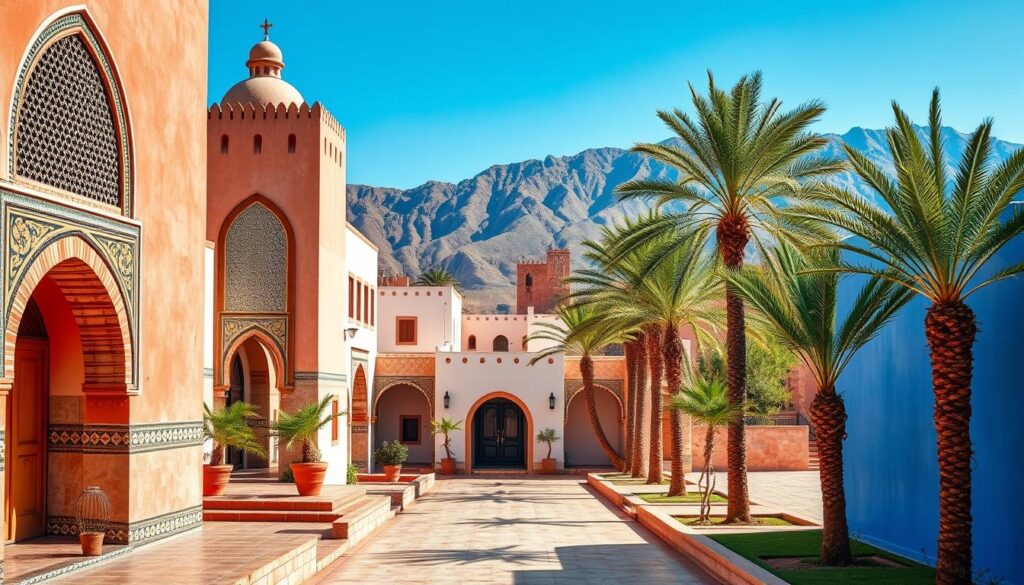
Residency Permits for Investors in Morocco
Investing in Morocco opens the door to various residency options tailored for different investor needs. Understanding the various types of residency permits is crucial for making informed decisions. Morocco offers several types of residency permits for foreign nationals looking to settle in the country. These include short-term permits that are renewable for one year, as well as long-term options available for up to ten years. Other permits cater to specific situations such as work, retirement, studies, and family reunifications, crucial for Moroccan investors who wish to immerse themselves in the local culture and economy.
Types of Residency Permits Available
Each residency permit type in Morocco comes with its own set of requirements. For instance:
- Short-term permits: ideal for investors looking to test the waters.
- Long-term permits: suitable for those wishing to stay longer.
- Work permits: necessary for individuals seeking employment opportunities.
- Retirement permits: designed for older expatriates with financial security.
- Student permits: intended for individuals pursuing education.
- Family permits: allow family members to join investors residing in Morocco.
Each type demands specific criteria such as financial stability, health documentation, and background verification, making the Moroccan residency application process comprehensive for potential investors.
Application Process for Residency Permits
The residency permit process in Morocco can be detailed and rigorous. Applicants must secure essential documentation, including proof of financial means, health insurance, and clear criminal backgrounds. These documents often require certified translations. Applications post-arrival in Morocco should be submitted through designated immigration offices, typically following a timeline set by visa rules. Initial applications for a carte sejour last for one year, with opportunities for annual extensions or longer commitments based on adherence to Moroccan Residency Permit Process regulations, providing flexibility for investors pursuing sustainable stays in the country10.
The application costs, such as 100 dirhams for registering a carte sejour, along with additional fees, should be budgeted accordingly by investors10.

For those looking to invest in real estate in Morocco while navigating the residency permits landscape, it’s advisable to consult local legal experts. Legal assistance often proves valuable in ensuring compliance and efficiency throughout the residency process. To gain deeper insights into the investment landscape, you can explore more information on real estate opportunities in11.
Investment Opportunities in Morocco
Morocco has rapidly become a focal point for foreign investors thanks to its diverse economic sectors and commitment to fostering a favorable Moroccan economic environment. Investors exploring Morocco investment opportunities can tap into multiple sectors that exhibit significant growth potential.
Key Sectors for Investment
Several key sectors underline the robustness of Morocco’s economy:
- Renewable Energy: With a strong investment focus on solar and wind energy, Morocco aims to lead in clean energy initiatives.
- Tourism and Hospitality: The country is a magnet for millions of tourists each year, creating vast opportunities for investment in hotels and tourism services.
- Aerospace Industry: A growing number of international companies are setting up production and maintenance facilities, benefitting from a skilled workforce and competitive costs.
- Sustainable Agriculture: This sector presents opportunities driven by innovative agricultural technologies.
- Mechanical Production Industry: Focused on manufacturing automotive parts, this field promises substantial investment potential.
- E-Commerce: The increasing internet and mobile penetration enhances opportunities for digital platforms and logistics services.
Benefits of Investing in Morocco
Investors can reap numerous benefits of investing in Morocco, including:
- Access to a growing economy with vibrant markets.
- A supportive government that encourages foreign direct investment through tax exemptions and subsidies.
- Competitive living costs and a skilled labor force tailored for various industries.
- Established legal frameworks promoting fair competition and transparency, which include Laws 24-10 and 5-96 that bolster corporate governance.
- Extensive consultancy and support available from institutions like Regional Investment Centers.
In addition, the Moroccan government offers robust tax incentives to enhance profitability, making it an attractive destination for global investors. For more detailed strategies related to Morocco’s investment landscape, visit here12.
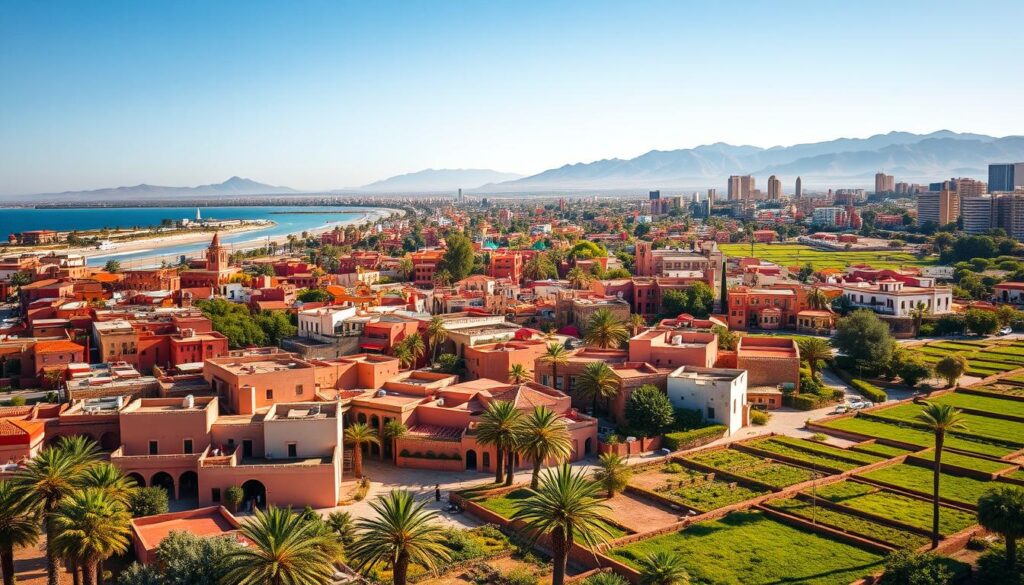
Moroccan Passport and Its Global Ranking
The current Moroccan Passport Ranking positions Morocco at 134, reflecting a relatively low standing in the global passport index. This passport offers its holders visa-free access to only 33% of countries worldwide, a limitation that can affect mobility for Moroccan citizens significantly. For those interested in understanding how passport rankings work, it’s crucial to note that rankings are typically influenced by the number of visa-free access destinations and diplomatic relationships13.
In contrast to high-ranking countries like Japan and Singapore, which enjoy access to 192 destinations, the Moroccan passport demonstrates a need for further enhancement in global relations to improve its standing13. As more nations establish citizenship by investment programs, Morocco could become a contender for better ranking by negotiating travel agreements that would allow its citizens increased freedom to travel.
Considering investment opportunities in Morocco, the nation has the potential to attract foreign investments that could support efforts to enhance its passport benefits. The establishment of a robust citizenship by investment program may lead to improved global relations and, as a result, elevate the Moroccan passport’s status on the international stage14. Socio-economic improvements are vital as Morocco strives to align its economic strategies with enhanced passport benefits for its citizens.
The benefits of holding a stronger passport extend beyond mere convenience; they signify a country’s diplomatic standing. As Morocco aims to bolster its economic environment and foster better relationships globally, the ranking of the Moroccan passport could reflect these enhanced diplomatic ties15.
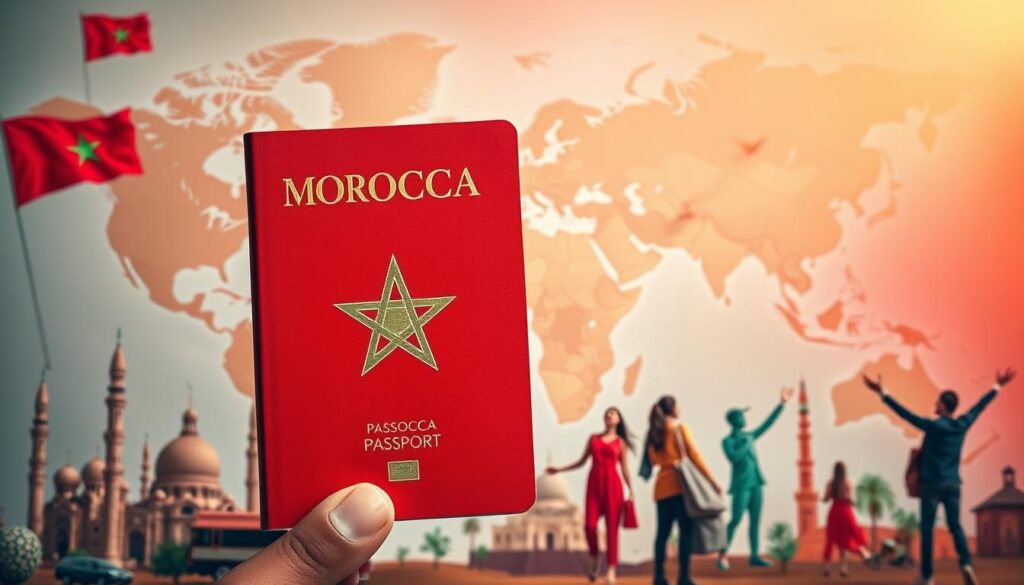
| Country | Passport Ranking | Visa-Free Access |
|---|---|---|
| Japan | 1 | 192 |
| Singapore | 1 | 192 |
| Germany | 2 | 190 |
| Morocco | 134 | 33% |
Requirements for Potential Investors
Investors considering residency in Morocco should be aware of specific requirements that outline the financial commitments needed before applying. While there are no explicit Financial Requirements for Moroccan Investment detailed by the government, applicants typically must demonstrate financial stability. The required Investment Amount may vary based on the type of investment, such as property or business ventures. It is essential to prepare the necessary Documentation for Moroccan Residency to successfully navigate the application process.
Financial Criteria for Investment
Potential investors looking to secure residency must show sufficient financial means to support their applications. Although no fixed financial thresholds are outlined, investment sums usually reflect the costs associated with property acquisitions or significant business investments in Morocco. Accordingly, demonstrating the ability to cover associated costs can strengthen an application, even if exact amounts are not specified by regulations.
Documentation Needed for Residency Applications
The residency application process includes several mandatory Residency Application Documents that applicants must prepare. These typically comprise:
- Police clearance certificates to prove no criminal record
- Medical certificates confirming the absence of infectious diseases
- Proof of financial stability, often represented by a local bank statement showing sufficient funds
Additionally, all documentation must be properly legalized to prevent delays and ensure smooth processing. For further guidance regarding safety and security conditions in Morocco, including travel advisories, refer to the provided travel information.
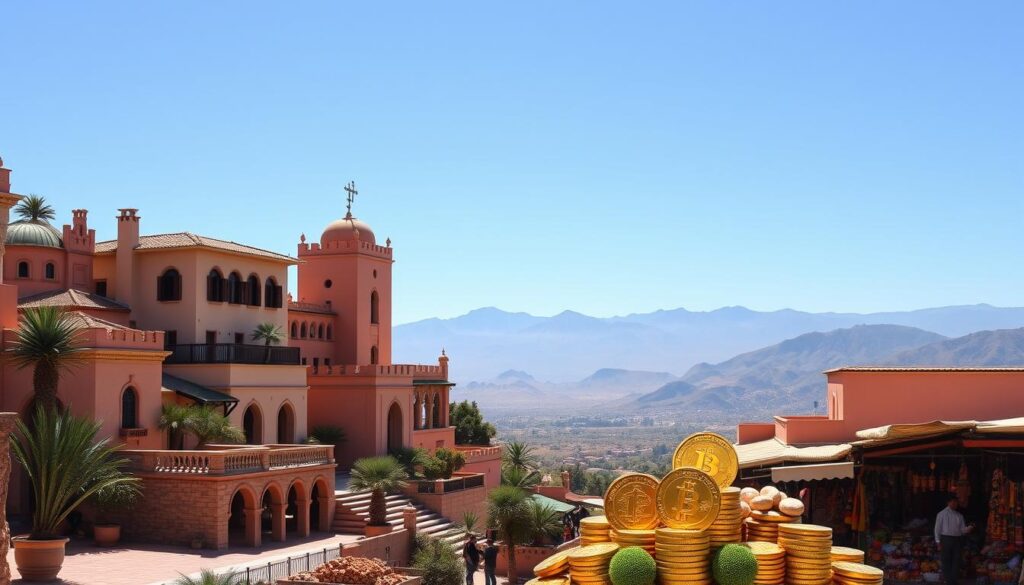
Legal Framework for Foreign Investments
Understanding the Regulatory Framework Morocco is crucial for foreign investors aiming to navigate the legal landscape of investment governance. Morocco fosters an attractive environment for foreign investment, facilitated by a robust legal framework designed to protect investors. This framework encompasses key institutions and agreements that enhance the security and transparency of investment operations.
Regulatory Bodies Governing Investments
Two primary entities govern the investment sector in Morocco: Bank Al-Maghrib and the Moroccan Capital Markets Authority (AMMC). These institutions play vital roles in regulating financial activities and ensuring compliance with local laws and international standards. Notably, there are 72 investment treaties and 62 economic agreements in place to bolster Morocco’s appeal as an investment destination16. These treaties serve to protect and promote investments, offering foreign investors a stable and predictable environment.
Morocco’s strategic approach includes significant investments in renewable energy, aiming to achieve 52% of its total installed capacity from renewables by 203016. The legal framework supports partnerships in sectors such as renewable energy, manufacturing, and infrastructure, underlining the country’s commitment to foreign investment17.
Potential Benefits for Investors
Investing in Morocco provides numerous opportunities that can enhance the overall investment experience for foreign nationals. With a strategic geographical location and a growing economy, the country opens doors for both market access and travel options.
Visa-Free Travel Opportunities
The Travel Benefits of Moroccan Residency may not offer extensive visa-free options on its own. Yet, it serves as a valuable stepping stone towards eventual citizenship, which can unlock enhanced mobility through potential future agreements. Holding Moroccan residency may allow investors to access emerging bilateral agreements that improve travel options across borders and make Visa-Free Travel for Investors more attainable.
Access to Moroccan Markets and Economic Sectors
Moroccan residency paves the way for foreign investors to engage with various sectors in the economy. This access includes industries such as trade, technology, and real estate, enabling a broader market presence. In the manufacturing industries, investments have surged by 20 percent, largely due to the contributions from foreign investments, which constitute about 20–25 percent of the total18. Not only have exports from the manufacturing sector increased by 25 percent, but the annual increase in newly established enterprises sits at 8 percent since 198518. The economy is witnessing a rising trend in industrial employment, which has seen a 6 percent increase, making it an attractive landscape for potential investors18.
Moroccan investment benefits include not only favorable regulations but also a supportive business environment aided by various government initiatives. As the U.S. Ambassador noted during the U.S.-Morocco Venture Capital Forum, opportunities in many sectors, driven by infrastructural growth and political stability, make this North African nation an appealing choice for international investments with diverse avenues for income generation18.
Challenges of Living in Morocco
Living in Morocco offers a mix of opportunities and challenges that foreign investors and expats should navigate. One significant challenge relates to the cultural adaptation required in a country with rich traditions and customs. Language barriers for expats become evident, as the primary languages are Arabic and French, complicating day-to-day interactions.
Cultural Adaptation and Language Considerations
Adjusting to Moroccan culture may require expats to immerse themselves in local customs and social norms. Understanding religious practices is essential, as these influence everyday life. A strong grasp of the local languages can ease the transition. Proficiency in Arabic and French can facilitate smoother communication with locals, helping expats build better relationships within their communities.
Language barriers for expats can lead to misunderstandings and difficulties in accessing vital services, from healthcare to legal assistance. Learning the language shows respect for the culture and opens numerous opportunities for social integration.
In summary, while living in Morocco presents significant challenges, especially in cultural adaptation and overcoming language barriers, embracing these challenges can lead to richer experiences and meaningful connections19.
Insights into Daily Life for Expats
Daily life in Morocco offers a unique blend of tradition and modernity that attracts many individuals to expat living. Expats often enjoy the vibrant atmosphere found in local markets filled with fresh produce, spices, and handmade crafts. While navigating these bustling environments, newcomers quickly learn to embrace the rich cultural heritage of the country.
The cost of living in Morocco is generally affordable, with rental properties yielding stable returns, a factor that plays a significant role in the decision-making process for expats considering real estate investments20. For example, renting a three-bedroom apartment in urban centers can vary between 4,000 and 7,000 MAD per month, making it an appealing option for families and individuals alike20.
Understanding local customs is essential for those living in Morocco. Expats find that knowing how to engage with the locals, whether in friendly markets or at community events, enhances their overall experience. The Moroccan lifestyle, enriched by culinary diversity, provides various opportunities for socializing, from enjoying traditional dishes to participating in local festivals.
While embracing expat living, it’s important for newcomers to stay informed about the financial aspects of daily life. Currency fluctuations can significantly impact financial planning, especially for those looking to invest21. Utilizing exchange-traded funds (ETFs) can be an effective strategy for managing currency risk while living abroad21.
Conclusion
In closing, the journey towards acquiring Moroccan citizenship through investment involves navigating a complex landscape, characterized by evolving policies and significant investment opportunities. While Morocco’s migration strategy offers various avenues for residency, the conclusion on Morocco investment emphasizes that direct pathways to citizenship remain somewhat limited. This scenario does not diminish the potential rewards available through smart investments in sectors such as manufacturing, tourism, and real estate, which have historically attracted substantial foreign direct investment, contributing to Morocco’s economic stability and growth22.
Underlining the significance of the local context, potential investors should focus on understanding Morocco’s legal frameworks and financial requirements to ensure successful applications. Recent trends in Moroccan governance reflect a broader emphasis on citizen rights and responsibilities, which aligns with final thoughts on Moroccan citizenship that encourage a collaborative approach to investment and integration within the society23. Thus, thorough research and strategic engagement with Morocco’s investment policies are essential for anyone considering making Morocco their new home.
Ultimately, aspiring investors can find valuable opportunities that not only enhance their personal wealth but also contribute to the vibrancy of the Moroccan economy. By addressing the challenges presented and taking advantage of the attractive sectors outlined, individuals can position themselves effectively within a rapidly changing investment landscape24.
FAQ
What is the process for obtaining Moroccan citizenship through investment?
While Morocco does not have a formal Citizenship by Investment Morocco program, you can explore various residency options through investment in sectors like agriculture, tourism, and services, which may eventually lead to citizenship after fulfilling legal requirements.
How does Morocco’s investment landscape differ from other countries with citizenship by investment programs?
Unlike countries like St. Kitts or Dominica, Morocco’s pathways to citizenship through investment are less direct and require strategic investments in real estate or business sectors along with residency duration before applying for citizenship.
What types of residency permits are available for investors in Morocco?
Investors can apply for different residency permits, including short-term (renewable for one year), long-term (up to ten years), work, retirement, student, and family permits, each with specific criteria that must be met.
What are the key investment sectors in Morocco?
Morocco’s economy presents opportunities in diverse sectors such as agriculture, renewable energy, textiles, and tourism. The government actively encourages foreign investment to stimulate economic growth.
What documentation is required for residency applications in Morocco?
Applicants must provide documents such as police clearance certificates, medical certificates, proof of financial stability, and local bank statements. Ensuring proper legalization of these documents is crucial for a smooth application process.
What financial requirements must investors meet for residency permits?
Although there are no specific financial criteria for a citizenship by investment program, residency permits typically require proof of sufficient financial means for property acquisition, business investments, or other capital endeavors.
How does becoming a resident of Morocco impact visa-free travel options?
While Moroccan residency does not inherently provide extensive visa-free travel, it may offer increased mobility if combined with future citizenship opportunities that could arise as Morocco develops its economic citizenship offerings.
How does local culture and language influence daily life for expats in Morocco?
Foreign investors may face cultural and linguistic challenges as Morocco’s primary languages are Arabic and French. Adapting to local customs and possibly learning the language can enhance daily living experiences and foster community ties.
Are there specific regulatory bodies overseeing investments in Morocco?
Yes, Bank Al-Maghrib and the Moroccan Capital Markets Authority (AMMC) regulate financial and investment activities, creating a framework that investors must understand to navigate legal obligations effectively.
Source Links
- https://www.eb5brics.com/eb-5-visa/morocco
- https://visitworld.today/blog/873/moving-for-permanent-residence-in-morocco-stages-and-conditions-for-obtaining-citizenship
- https://korte-law.com/investing-in-morocco-what-you-need-to-know
- https://mykingsgate.co.za/info/morocco-citizenship-by-investment-15869/
- https://www.state.gov/reports/2023-investment-climate-statements/morocco/
- https://www.vaia.com/en-us/explanations/spanish/spanish-social-issues/moroccan-immigrants/
- https://lawzana.com/citizenship-by-investment-lawyers/morocco
- https://bhadviser.org/can-foreigners-get-moroccan-citizenship/
- https://nomadcapitalist.com/global-citizen/second-passport/best-citizenship-by-investment-programs/
- https://marocmama.com/applying-for-a-carte-sejour-residency-in-morocco/
- https://www.eb5investors.com/eb5-basics/international-immigrant-investor-programs/
- https://www.giambronelaw.com/site/news-articles-press/international-articles/investment-in-morocco-promising-a-destination-int-business
- https://www.uglobal.com/en/investment/posts/southeast-nations-eu-states-dominate-new-passport-index-rankings
- https://www.state.gov/reports/2024-investment-climate-statements/morocco/
- https://www.britannica.com/place/Morocco/Economy
- https://www.giambronelaw.com/site/news-articles-press/international-articles/moroccos-energy-sector
- https://jusmundi.com/en/document/publication/en-nationality-of-investor-dual-nationality
- https://www.elibrary.imf.org/view/book/9781557751409/ch10.xml
- https://www.state.gov/reports/2023-country-reports-on-human-rights-practices/morocco/
- https://aparthotel.com/consultation/can-foreigners-buy-property-in-morocco/
- https://creativeplanning.com/international/insights/investment/tips-investing-american-expat/
- https://www.state.gov/reports/2022-investment-climate-statements/morocco/
- https://aei.pitt.edu/67177/1/euspring_paper_4_citizenship_in_morocco.pdf
- https://www.cambridge.org/core/books/citizenship-and-residence-sales/investor-citizenship-and-state-sovereignty-in-international-law/813F1D50697A5C81A4DECD67105EAE40/core-reader

Comments